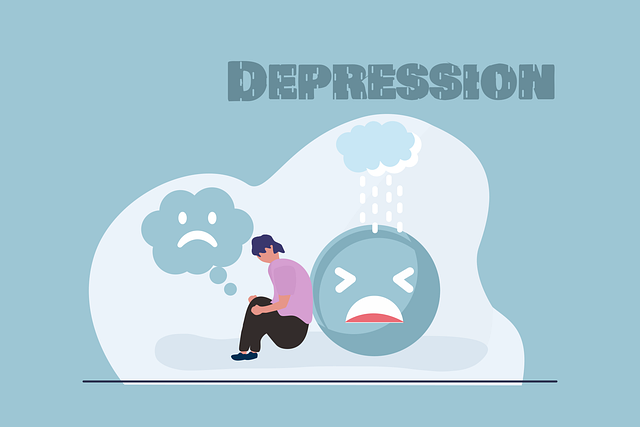Pregnancy is a transformative period in a woman’s life, marked by profound physical, emotional, and hormonal changes. Proper health management during this time is crucial not only for the well-being of the mother but also for the healthy development of the baby. However, the journey doesn’t end with childbirth—postpartum care is equally important to ensure long-term recovery and vitality. Here’s a comprehensive guide to managing health during pregnancy and beyond, covering nutrition, exercise, mental health, medical care, and self-care practices.
Health Management During Pregnancy
1. Prioritize Nutrition
A balanced diet is the foundation of a healthy pregnancy. Nutrient-rich foods support fetal growth, maternal health, and energy levels. Key considerations include:
- Folic Acid : Essential for preventing neural tube defects. Found in leafy greens, fortified cereals, and supplements.
- Iron : Supports increased blood volume and prevents anemia. Sources include lean meats, beans, spinach, and iron-fortified foods.
- Calcium and Vitamin D : Crucial for fetal bone development. Dairy products, almonds, and fortified plant-based milks are excellent choices.
- Protein : Builds fetal tissue and supports maternal muscle repair. Include eggs, fish, tofu, and legumes.
- Omega-3 Fatty Acids : Promote brain and eye development. Found in fatty fish (like salmon), walnuts, and flaxseeds.
- Hydration : Drink plenty of water to prevent dehydration, constipation, and urinary tract infections.
Avoid alcohol, raw seafood, unpasteurized dairy, and excessive caffeine to minimize risks to the baby.
2. Stay Physically Active
Exercise during pregnancy offers numerous benefits, including improved circulation, reduced back pain, better mood regulation, and easier labor. Safe activities include:
- Walking
- Prenatal yoga or Pilates
- Swimming
- Low-impact aerobics
Always consult your healthcare provider before starting or continuing any exercise program. Avoid high-intensity workouts, contact sports, and activities that risk falling.
3. Attend Regular Medical Checkups
Routine prenatal visits monitor both maternal and fetal health. These appointments typically involve:
- Blood pressure checks
- Urine tests
- Ultrasounds to track fetal growth
- Screening for gestational diabetes and other conditions
Follow your doctor’s recommendations for vaccinations (e.g., flu shot and Tdap vaccine) and screenings to ensure a safe pregnancy.
4. Manage Mental Health
Pregnancy can bring emotional ups and downs due to hormonal fluctuations and stress. Strategies to support mental well-being include:
- Practicing mindfulness or meditation
- Staying connected with loved ones
- Seeking professional help if experiencing symptoms of anxiety or depression
- Joining support groups for expectant mothers
5. Get Adequate Rest
Fatigue is common during pregnancy, especially in the first and third trimesters. Prioritize sleep by:
- Establishing a consistent bedtime routine
- Using pillows to support your growing belly
- Napping when needed
Health Management After Pregnancy
The postpartum period—often referred to as the “fourth trimester”—is a critical phase for recovery and adjustment. Many women focus solely on caring for their newborns, neglecting their own needs. Here’s how to prioritize your health during this transformative time:
1. Focus on Postpartum Recovery
Your body undergoes significant changes after childbirth. Allow yourself time to heal:
- Pelvic Floor Rehabilitation : Practice Kegel exercises to strengthen pelvic muscles weakened during delivery.
- Wound Care : Keep incisions clean (if applicable) and follow your doctor’s advice for healing.
- Gradual Return to Exercise : Start with gentle movements like walking or postnatal yoga before resuming more intense workouts.
2. Eat Nourishing Foods
Postpartum nutrition supports healing, breastfeeding (if applicable), and energy levels. Focus on:
- Protein-rich foods for tissue repair
- Iron to replenish stores depleted during childbirth
- Hydration, especially if you’re breastfeeding
- Complex carbohydrates for sustained energy
Don’t hesitate to ask for help preparing meals or consider meal prep services if cooking feels overwhelming.
3. Monitor Mental Health
Postpartum depression (PPD) affects up to 1 in 7 women and requires attention. Symptoms may include persistent sadness, irritability, difficulty bonding with the baby, or feelings of hopelessness. Reach out to your healthcare provider if you experience these signs. Other ways to nurture mental health include:
- Accepting help from family and friends
- Setting realistic expectations for motherhood
- Taking short breaks to recharge
4. Schedule Follow-Up Appointments
Postpartum checkups are vital for addressing any lingering concerns, such as healing complications, hormonal imbalances, or contraception planning. Discuss your birth control options with your doctor to make informed decisions about family planning.
5. Establish a Support System
Motherhood can feel isolating, so lean on your community:
- Connect with other new moms through local groups or online forums.
- Share responsibilities with your partner or family members.
- Don’t hesitate to hire a doula or postpartum doula for additional support.
6. Practice Self-Care
Self-care isn’t selfish—it’s essential. Even small acts of kindness toward yourself can make a big difference:
- Take a warm bath
- Journal your thoughts
- Spend quiet moments sipping tea or reading
- Prioritize hobbies that bring joy
Long-Term Health Considerations
Managing health during pregnancy and postpartum lays the groundwork for lifelong wellness. Here are some tips to maintain balance moving forward:
- Maintain a Healthy Weight Gradually return to your pre-pregnancy weight through a combination of nutritious eating and regular exercise. Avoid crash diets, which can harm your energy and milk supply if breastfeeding.
- Prioritize Bone Health The demands of pregnancy and breastfeeding can deplete calcium stores. Continue consuming calcium-rich foods and consider supplements if advised by your doctor.
- Stay Active Regular physical activity reduces the risk of chronic diseases, boosts mood, and enhances overall fitness. Find activities you enjoy and make them part of your routine.
- Monitor Hormonal Changes Hormones fluctuate significantly after childbirth. If you notice irregular periods, hair loss, or other unusual symptoms, consult your healthcare provider.
- Plan for Future Pregnancies If you plan to have more children, discuss spacing pregnancies to allow your body adequate recovery time. Experts recommend waiting at least 18–24 months between births.

Leave a Reply